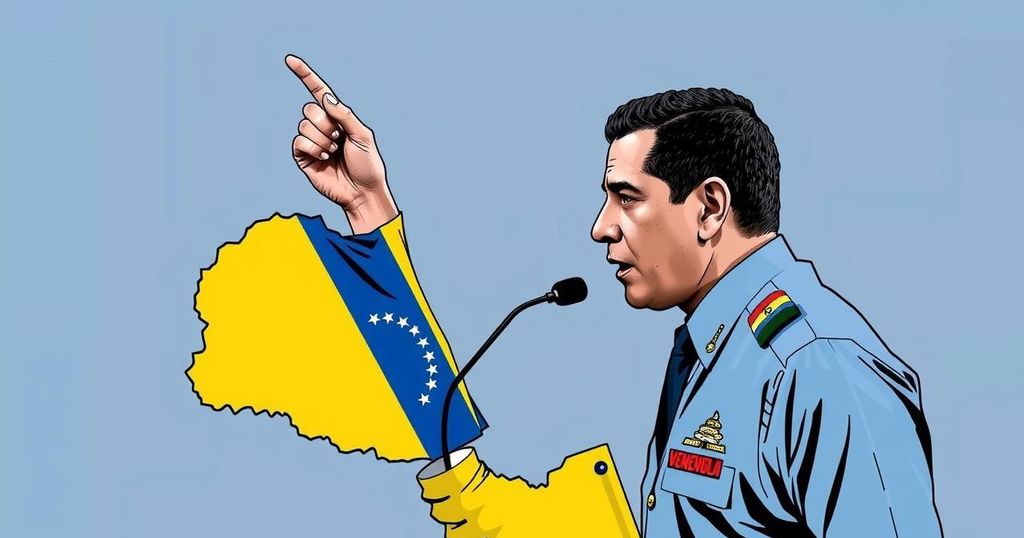Colombia Demands Venezuela Release Election Records by January 10
Colombia has declared it will not recognize President Nicolas Maduro’s reelection unless Venezuelan authorities publish the voting records from this year’s elections by January 10. Maduro’s government announced his victory without providing a detailed vote breakdown, which has led to accusations of fraud from the opposition and a refusal of recognition from various countries, including Brazil and the United States. Colombian officials have stated their position clearly, pointing to the need for transparency in the electoral process, amid rising tensions and violent crackdowns in Venezuela following the elections.
Colombia announced on Wednesday that it will not acknowledge the reelection of Venezuelan President Nicolas Maduro unless his administration publishes the voting records from the disputed elections held earlier this year by January 10, the date on which his current term is set to conclude. The electoral authority of Venezuela, known as the CNE and aligned with Maduro’s regime, proclaimed his victory shortly after the closure of the polls in July, asserting that he received 52 percent of the votes. However, the reelection has been met with skepticism from much of the international community, which has refrained from endorsing the results without the comprehensive vote breakdown mandated by law. The opposition has alleged electoral fraud and has provided its own analysis of the polling station results, which suggests that its candidate, Edmundo Gonzalez Urrutia, garnered two-thirds of the votes cast on July 28. In contrast, the CNE contends that the opposition received only 43 percent. Gonzalez Urrutia fled to Spain in September following the issuance of an arrest warrant, which his party characterizes as politically motivated. Colombian Foreign Minister Luis Gilberto Murillo stated, “the presentation of the (Venezuela voting) minutes must be made before the end of the current presidential term, on January 10, 2025.” He emphasized that if these records are not disclosed, Colombia will follow through on President Gustavo Petro’s assertion that the country will not recognize the results reported by the Venezuelan electoral authority. In response, Venezuelan Foreign Minister Yvan Gil accused Murillo of being overly passive in bilateral discussions while accusing him of succumbing to external pressures from radical factions and the United States. He warned, “Venezuela will answer him in due time and he will regret his constant meddling in our internal affairs.” Brazil has also withheld recognition of Maduro’s reelection, demanding a detailed explanation of the election results. Supported by the United States, several countries in Latin America, including Argentina and Peru, have aligned with the opposition’s claim of victory. Additionally, following Maduro’s reelection announcement, a violent crackdown on protests in Venezuela has resulted in at least 27 fatalities, approximately 200 injuries, and around 2,400 arrests.
The political situation in Venezuela has been tumultuous, particularly following the July elections in which President Nicolas Maduro was declared the victor. His administration has been accused of manipulating the electoral process, leading to widespread distrust within the international community. The demands from Colombia and other nations highlight the call for transparency and accountability in Venezuela’s electoral system. Maduro’s government has faced accusations of oppression against dissenters, reflecting a broader crisis in governance and human rights in the country. Understanding this context is crucial to grasping the significance of Colombia’s position on recognizing the election results and the general sentiment throughout Latin America regarding democracy in Venezuela.
Colombia’s firm stance against recognizing the results of the recent Venezuelan elections underscores the ongoing tensions surrounding electoral integrity in Venezuela. The requirement for the publication of vote records reflects a broader demand for transparency, echoed by multiple countries in the region. The situation remains precarious, with international relations fraying as various governments navigate their responses to Venezuela’s internal political crises and allegations of fraud. The developments in the coming weeks will be pivotal in determining the legitimacy of Venezuela’s electoral process and its implications for regional stability.
Original Source: www.barrons.com




Post Comment